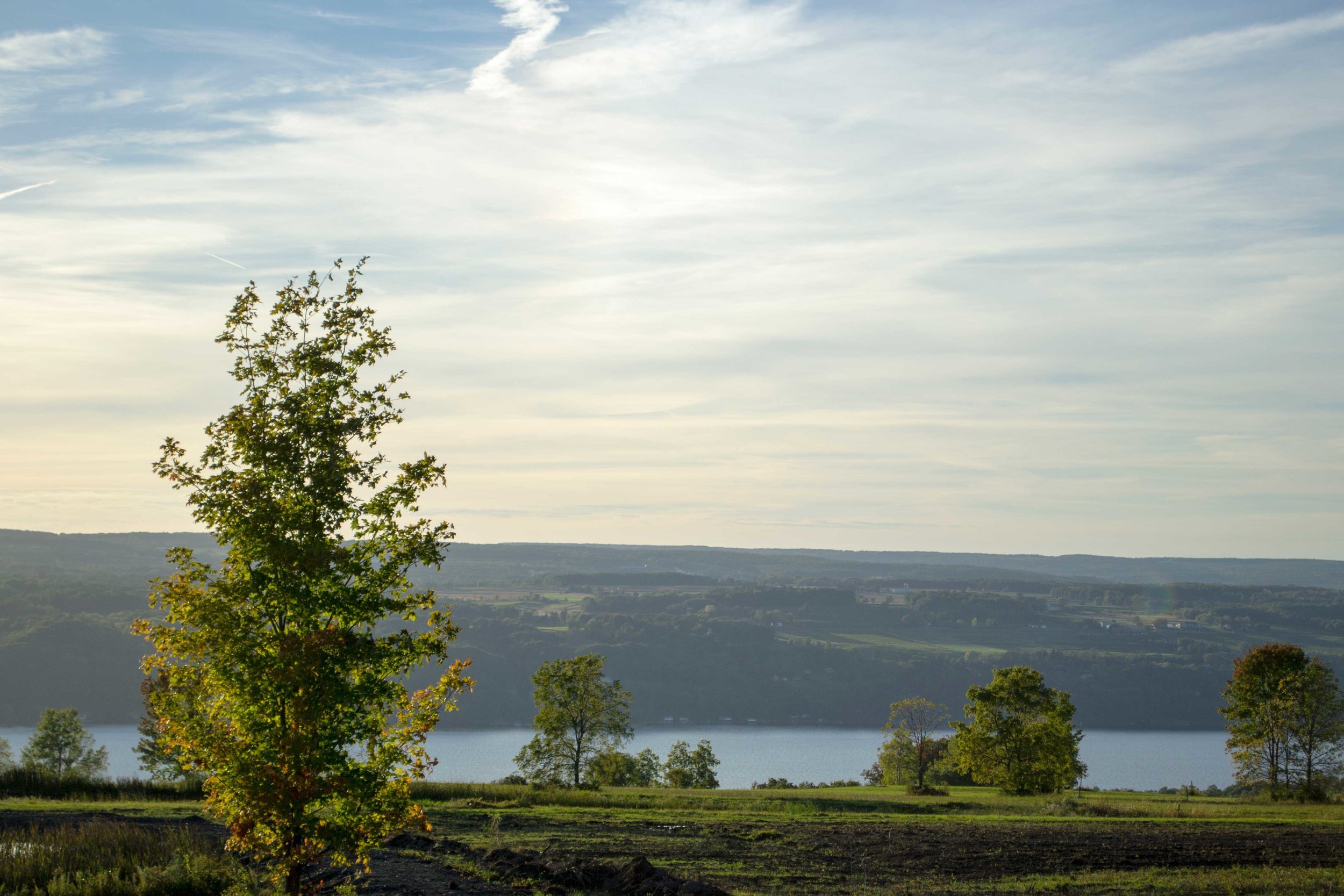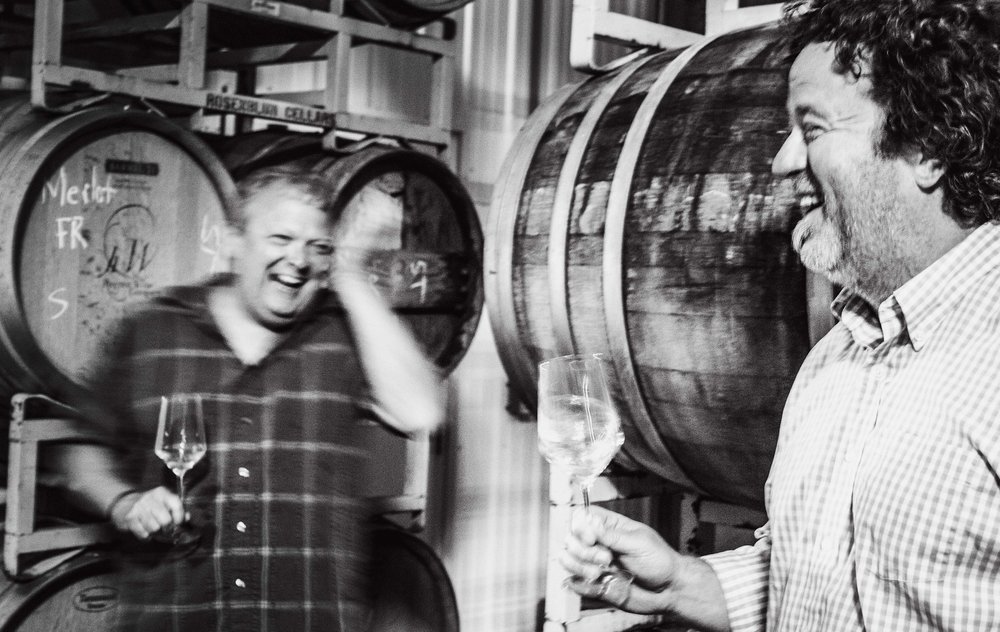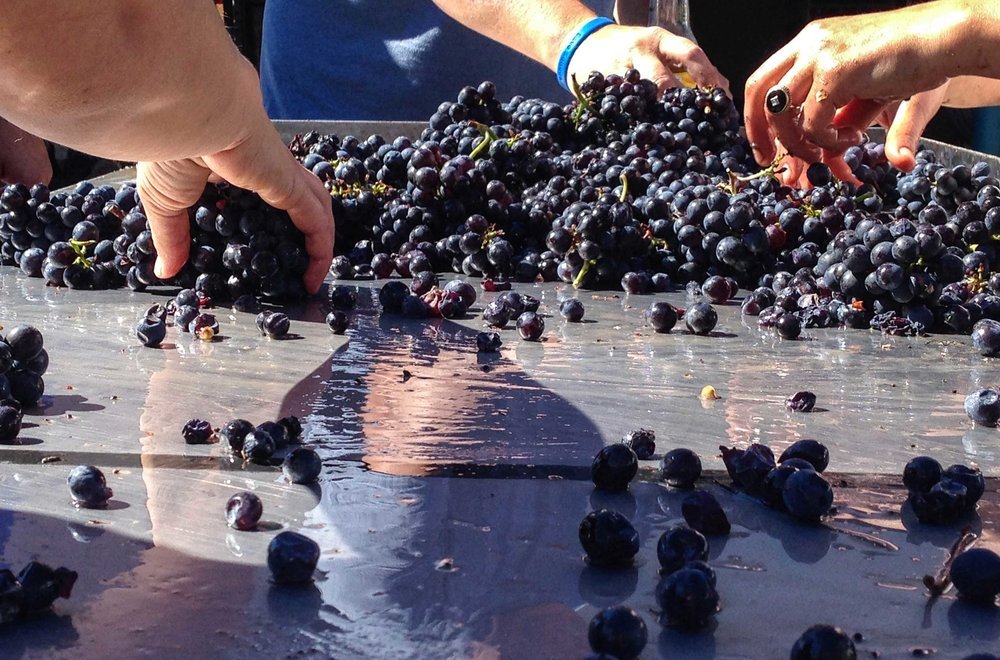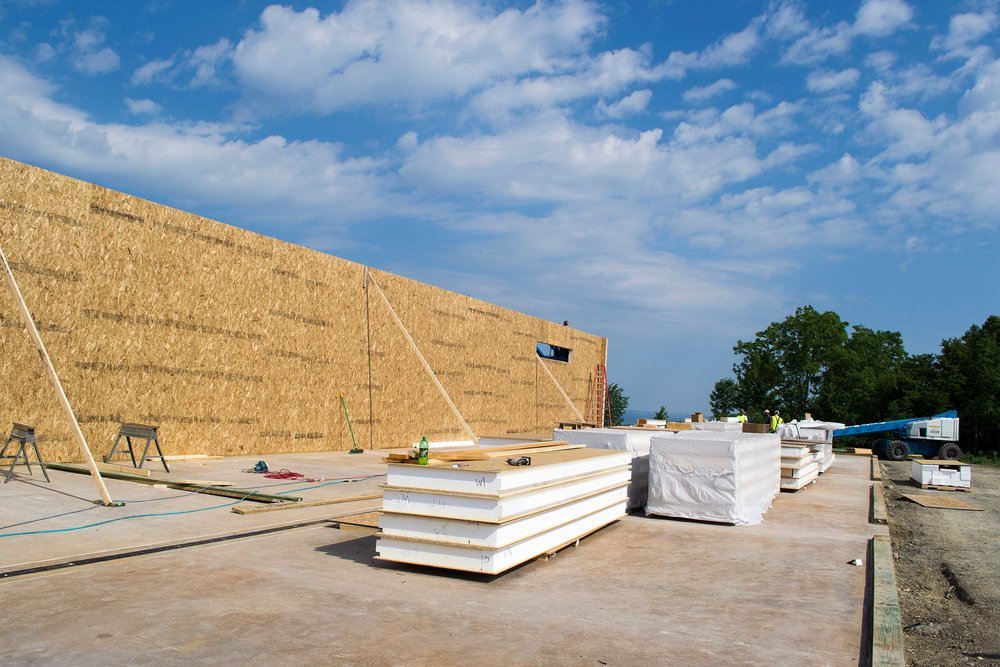
Our land and our people are at the helm of sustainability initiatives at Forge. It is our duty to respect and preserve the environment that allows us to do what we love. We are committed to responsible agricultural and business practices that are intrinsic to the prospering of our region and our community.
BIOINTENSIVE
VITICULTURE
Our aim is to continue developing the vineyard in a biointensive method by building up the soil with organic matter with the use of cover crops and compost, hand cultivating under vine to eliminate the use of herbicides, and with strict canopy management that allows for adequate airflow to work against disease pressure, ruling out any use for harsh chemicals. We focus on incorporating natural materials into the site, such as cedar trellis posts instead of pressure treated posts, and compostable ties (used to tie down the vines in the spring or guide young vines on the trellis) in order to preserve the natural environment. By farming our land organically, our goal is to give voice to the land by allowing our site to express the terroir in a transparent, honest manner.
QUALITY
OF LIFE
We believe that in order for the Finger Lakes to thrive and be a sustainable industry for those who work here and those who visit, a living wage is necessary. Every role in the winery and vineyard is of equal and great importance, requiring diligent yet incredibly rewarding work, which is why we are committed to paying a wage that gives our staff the ability to live and progress in the region, and offer health insurance.
In 2022, we were certified by Living Wage for US as a Tier 1 employer with Plus Designation. This certification shows our commitment to closing any wage gaps to provide a full family living wage at a rate of inflation plus 3% on average annually. The Plus Designation refers to the additional benefits we provide that go above and beyond for our team.
HAND WORK
The vast majority of the work in the vineyard is done by hand instead of by tractor. We prefer that our soils breathe and encourage biological diversity in the most natural way, which is why we limit the use of tractors in the vineyard. Over time, tractors can greatly compact the soils and hinder the growth of organic matter.
BIODIVERSITY
One of our core ideas for the development of our land is to foster a site of great biodiversity. In the coming years, we will continue to plant more fruit trees and bushes (we currently have approximately 95 apple and pear trees planted), introduce farm animals that will aid in pest and weed control, and give the regional species of flora and fauna a space to flourish and attract beneficial wildlife.
NO CAPSULES
LIGHTWEIGHT BOTTLES
We do not use capsules on our bottles. Wine capsules are often made of tin, PVC, or Polylam, of which only tin is recyclable. Tin is also the most expensive option of capsule, and only a small fraction of wineries who use capsules actually choose tin over other options, thus the waste grows. We do our part not to contribute to the ever-growing plastic waste in the world, which ends up in massive quantities in our oceans and landfills.
WINERY
EFFICIENCY
Our winery was constructed with SIPs (Structural Insulated Panels), a Green Building style of construction that is highly efficient and airtight. These panels have enabled us to reduce our energy consumption for heating and cooling the space. Each “zone” in the winery (production area, tank room, barrel room #1, and barrel room #2) is isolated and maintains its own autonomous electric heating and cooling system specifically designed for that space.













